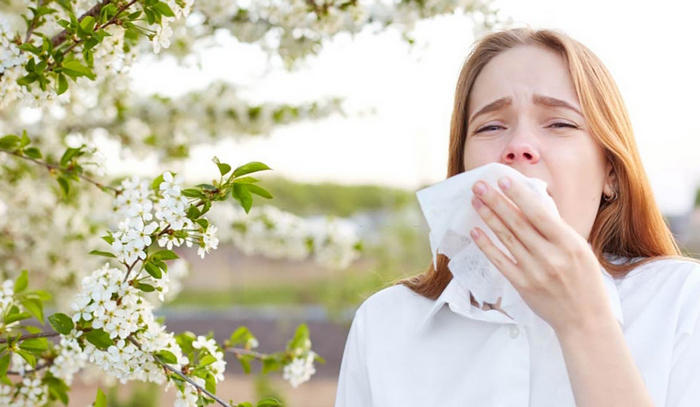Spring allergies, also known as seasonal allergies, are a common health problem that affects a large number of people. These allergies occur when the immune system overreacts to certain substances in the environment, such as pollen from trees, grasses, and weeds. The symptoms of spring allergies can range from mild to severe and can greatly impact the quality of life for those affected. In this article, we will discuss the signs of spring allergies and the available treatments.
Allergic Rhinitis (Hay Fever and Seasonal Allergies) Signs & Symptoms (& Why They Occur) :
Why your allergies get worse every year :
Signs of Spring Allergies:
The signs of spring allergies may vary from person to person, but the most common symptoms include:
Sneezing: Sneezing is a common symptom of spring allergies, and it occurs when the body tries to expel the allergen from the nose.

Runny or stuffy nose: A runny or stuffy nose is another common symptom of spring allergies. It occurs when the body produces excess mucus to flush out the allergen.
Itchy eyes, nose, or throat: Itchiness in the eyes, nose, or throat is a common symptom of spring allergies. It occurs when the immune system releases histamine in response to the allergen.
Watery eyes: Watery eyes are a common symptom of spring allergies and occur when the body produces tears to flush out the allergen.
Fatigue: Fatigue is a common symptom of spring allergies and occurs when the body is working hard to fight off the allergen.
Treatments for Spring Allergies:
There are several treatments available for spring allergies, and they include:
Over-the-counter medications: Over-the-counter medications, such as antihistamines and decongestants, can help relieve the symptoms of spring allergies. Antihistamines block the release of histamine, which can help relieve itchiness and sneezing. Decongestants help reduce nasal congestion by narrowing the blood vessels in the nose.
Prescription medications: Prescription medications, such as corticosteroids and leukotriene modifiers, can also help relieve the symptoms of spring allergies. Corticosteroids reduce inflammation in the body, while leukotriene modifiers block the action of leukotrienes, which are chemicals that cause inflammation.
Immunotherapy: Immunotherapy, also known as allergy shots, can help reduce the symptoms of spring allergies. This treatment involves injecting small amounts of the allergen into the body over a period of time, which can help the body build up immunity to the allergen.
Avoiding allergens: Avoiding allergens, such as pollen, can help reduce the symptoms of spring allergies. This can be done by staying indoors during peak pollen times, using air conditioning instead of opening windows, and wearing a mask when outdoors.
It is also important to note that spring allergies can be prevented by taking some preventive measures. These measures include:
Monitoring pollen count: Monitoring the pollen count in your area can help you avoid exposure to allergens. You can check the pollen count on your local weather website or app.
Keeping your home clean: Keeping your home clean can help reduce exposure to allergens. Regularly vacuuming and dusting can help remove pollen and other allergens from your home.
Using air filters: Using air filters can help reduce the number of allergens in the air. High-efficiency particulate air (HEPA) filters can help remove pollen and other allergens from the air.
Taking a shower: Taking a shower can help remove pollen from your skin and hair. It is especially important to take a shower before going to bed to avoid transferring pollen to your bedding.
In conclusion, spring allergies can be a nuisance, but they can be effectively managed through various treatment options and preventive measures. By recognizing the signs of spring allergies, taking preventive measures, and seeking treatment, you can minimize the impact of spring allergies on your daily life. If you have any concerns about spring allergies, talk to your healthcare provider. They can help determine the best course of action to manage your symptoms and improve your quality of life.


